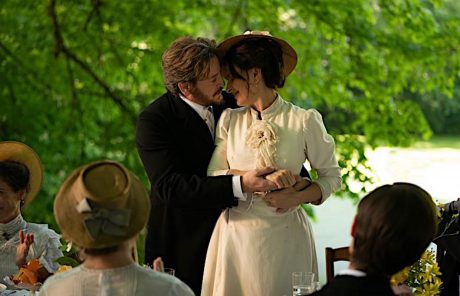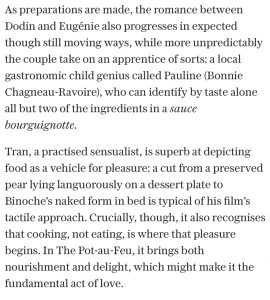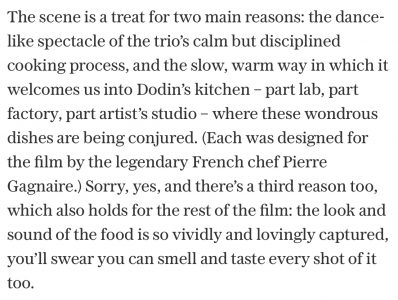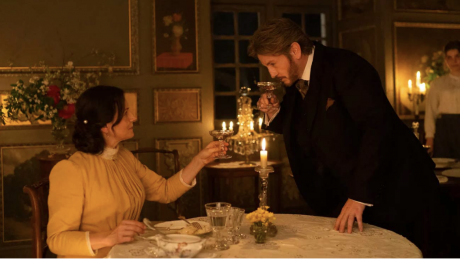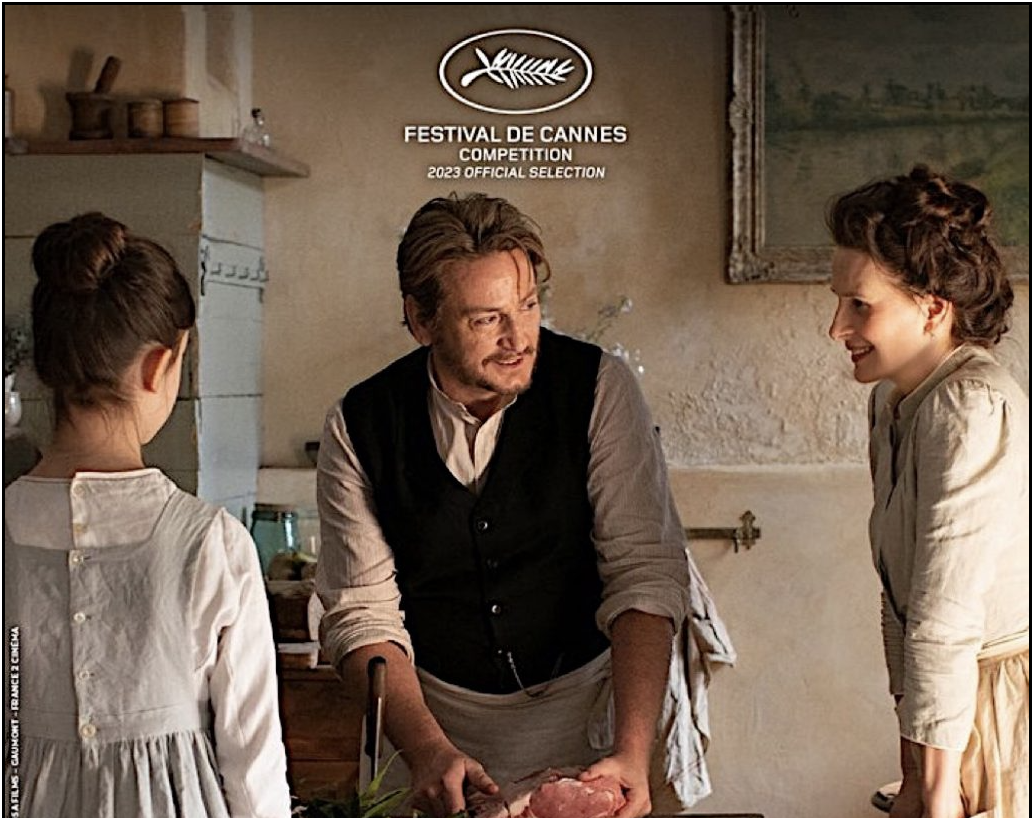Tran Anh Hung‘s The Pot au Feu (aka La Passion de Dodin Bouffant) is the Palme d’Or grand slam I’ve been hoping to see for the last eight days or so.
The director of The Scent of Green Papaya (’93) has crafted — hands down, no question — the greatest foodie love story of the 21st Century. And it’s certainly among the most transporting films about the necessary love, worship and spirituality that has radiated from every high-end foodie film of the previous century — Babette’s Feast, Tampopo, Chocolat, Big Night, Mostly Martha, Ratatouille.
No Cannes film has sunk in quite as deeply or as fully or turned the key just so — none has caressed my soul or made me swoon quite like this one.
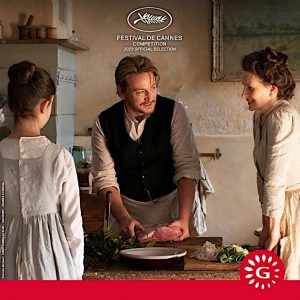
Set in rural France around 1885 and adapted from Marcel Rouff‘s “La Vie et la passion de Dodin-Bouffant,” it’s a longish (135 minutes), meditative, story-light romance about a soothing autumnal blending of souls (Juliette Binoche‘s Eugenie + Benoît Magimel‘s Dodin Bouffant).
Slow to ripen, their romance has been simmering over 20 years of cooking collaboration, and midway through it finally results in the somewhat reluctant Eugenie accepting Dodin’s proposal of marriage. Alas…
Erotic desire is certainly a key ingredient, but their relationship is primarily rooted in the reverential worship of sublime French cooking, and the exacting preparation that goes into it. Exquisite food is a manifestation of love and natural grace that melts the soul and vice vera.
And the whole thing is lovingly captured by dp Jonathan Ricquebourg with alternate use of sunlight and candlelight, and frequently shot inside a large French kitchen warmed by a perfect brick fireplace.
If the Cannes jury doesn’t award The Pot au Feu with the Palme d’Or or at least the second-place Grand Prix…well, it wouldn’t be the first time that a jury has ignored the obvious.
Incredibly and stunningly, I’ve just been told by a fellow journo that he just spoke with a few jackals who hate it and feel it’s among the festival’s worst. There is truly no accounting for taste.
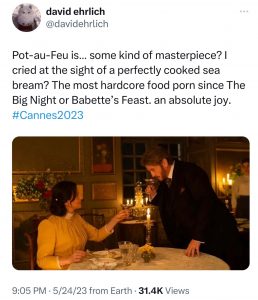
I can only re-emphasize that the God-food-soul aspect (certainly the central current throughout) mixes perfectly with the aging-male-gourmet-adores-brilliant-woman-chef love story, and that the slow pace and lack of a substantive story doesn’t get in the way of anything.
If you’re a little bit older (30-plus) and have the slightest appreciation or respect for the basic elements that go into heavenly cooking (spirit, devotion, discipline), this slow-moving but luscious film will put the hook in and then some. It got my blood going, made my mouth water repeatedly and (should I put it this way?) gave me a foodie stiffie
All great films play by their own rules and pass along universal truths with their own particular playbook. This is what The Pot au Feu manages every which way. It never feels precious or over-sauced or the least bit sentimentalized.
The feeling of restraint is constant and the silences (no music!) are wonderful as Hung and Ricquebourg simply show how various dishes are prepared with immaculate care, especially during an early sequence in which Binoche overseas dish after dish with seemingly divine inspiration.
You can call it food porn and to be fair that’s what it is, but The Pot au Feu is an exceptionally spiritual (you could even call it religious) variation upon a theme. Love stories come in all shapes and sizes.
